The first-ever cohort to receive the Stella M. Hammond Planetary Solutions Fellowship will have twelve students selected from an exceptionally competitive pool of applicants. The fellowship supports students advancing the YPS mission to catalyze all that Yale is, and all that Yale does in pursuit of planetary solutions. The participants’ (YPS Doctoral Fellows) research interests and perspectives are diverse, bringing exciting opportunities for trans-disciplinary collaboration.
Over the course of the two-year fellowship, the cohort, which consists of 11 PhD students and one professional school student, will build community, learn together, and make positive impacts across a wide range of challenges. YPS Doctoral Fellows receive a supplemental stipend and research funding as well as trainings in areas such as leadership, grants management, systems thinking, and more. YPS, in partnership with the Graduate School of Arts and Sciences, is proud to offer this unique opportunity. The full details of the fellowship can be found on the application page.
Meet the fellows!
Lucas Bertucci
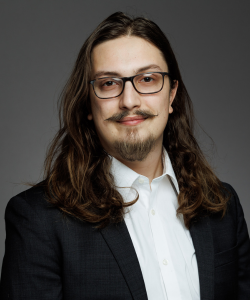
Research Focus: Recycling solar panel waste into photocatalytic devices which mitigate methane emissions through chemical capture and conversion via sunlight.
Lucas is a Chemical Engineering PhD student in Prof. Shu Hu’s Lab at the Yale Energy Sciences Institute since 2023. He received his B.S. in Chemical Engineering from the University of Kentucky in 2019. His undergraduate research specialized in the metallurgical recycling of neglected wastes including solar panels, computers, cell phones, batteries, and other electronic wastes.
Through the success of his research, Lucas has become the co-founder of start-up companies Verdant Beneficiated Resources and its subsidiary American Solar Recycling Company. For his innovations in recycling, Lucas holds multiple patents. In the Hu Lab, he is continuing his efforts by converting materials recovered from solar panel waste into photocatalysts for methane capture and conversion.
By leveraging synergies from addressing multiple planetary challenges, Lucas seeks to actualize a holistic solution that successfully encompasses environmental, social, and economic dimensions.
Cole Brookson

Research Focus: detection, estimation, and prediction of the effects of climate and climate change on infectious disease.
Cole is a PhD student in Epidemiology at Yale University and a Lighthouse Scholar with the Verena Institute. He uses mathematical and computational approaches to try and detect predictable patterns in systems such as climate-forced infectious diseases, and host-pathogen networks.
Outside of his work at the intersection of disease ecology & climate epidemiology, he has worked on a variety of other topics including food web ecology, ecotoxicology, and fisheries science. They graduated their MSc in Ecology from the University of Alberta, and their H.BSc in Ecology & Evolutionary Biology from the University of Toronto.
Most recently prior to his PhD, he worked as a researcher for the ‘Na̱mg̱is and Kitasoo Xai’xais First Nations researching parasite spillover from farmed to wild fish stocks on North America’s west coast. Cole is incredibly passionate about open science and computational literacy in the biological and health sciences, and routinely teaches workshops on programming and reproducible methods. When not at their computer, Cole can be found biking around the city, playing music, or picking up some absurd new hobby.
Lily Haje
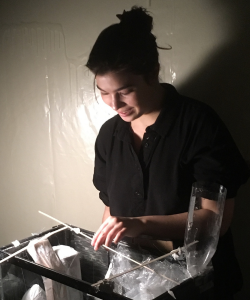
Research Focus: My dissertation explores the use of puppetry in staging the apocalyptic from both practical and theoretical perspectives, paying particular attention to the material construction of performing objects.
Lily Haje is a New York-based theater scholar and artist currently pursuing a DFA at David Geffen School of Drama at Yale, where she is writing a dissertation about the use of puppetry in apocalyptic performance. She holds a BA in Theater and Study of Religion from Wesleyan University and an MFA in Dramaturgy & Dramatic Criticism from Yale.
While in graduate school Lily has been a teaching fellow for courses on theater history, performance studies, and collaborative performance making and served as a managing editor of Theater magazine alongside her work as a dramaturg for production at both the school and Yale Repertory Theater.
Recent creative projects as a lead artist include translating, adapting and performing Sponsus, a puppet performance based on the medieval music drama of the same name, built into an opening altarpiece (Object Movement Puppetry Festival); translating and directing Maurice Bouchor’s 1889 Symbolist puppet play Tobie; co-curating Love Songs, a multi-part digital project based on a poem by Mina Loy (Yale Cabaret), and prior to grad school, devising and directing Telegraph Bois, The Silo (Ars Nova), and Fire + Bone (Wesleyan University).
Ari Lerner
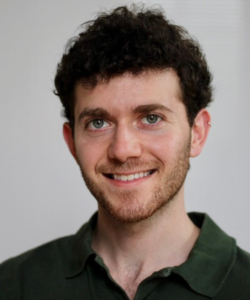
Research Focus: using mathematical modeling and optimization to guide conservation planning decisions.
Ari is a PhD student in Operations at the Yale School of Management. He holds a Bachelor of Science in Mathematics from Tufts University.
Victoria Meola
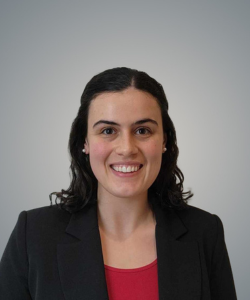
Research Focus: The design, synthesis, and analysis of polymer-based antiscalants to inhibit silica scaling for the improved efficiency of water treatment membranes.
Victoria is a PhD student in Chemical Engineering at Yale University. She is excited to contribute her chemical engineering training and knowledge to YPS’s mission of addressing planetary challenges by promoting environmental sustainability through her research of the design, synthesis, and analysis of polymer-based antiscalants. She earned a Bachelor of Engineering in Chemical Engineering from McGill University.
Ella Milliken
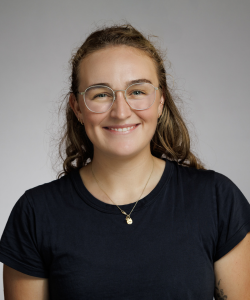
Research Focus: The applications of carbon dioxide removal techniques (i.e., biochar, enhanced weathering, and manure transport optimization) in working land communities, aiming to develop optimized quantification methods for scaled deployments.
Ella is a PhD student in the Earth and Planetary Sciences Department at Yale University, with a concentration in Geochemistry. Her research focuses on understanding the scientific, economic, and social benefits of deploying carbon dioxide removal techniques in working land communities. Her primary scientific efforts have centered on monitoring various large-scale enhanced weathering trials in the Southeast, collaborating with Lithos Carbon, North Carolina State University, Virginia Tech, and the Lawrence Livermore National Laboratory.
Additionally, she is developing frameworks to optimize biochar and manure production and application within rural communities, aiming to establish pathways for community organizations to deliver carbon credits directly to buyers. Before joining Yale, Ella received a Fulbright Student award to study the effects of afforestation on soil organic carbon storage in Norway. She received her B.A. in Biology from Carleton College.
Tobias Muellers

Research Focus: the intersection of safer chemical design and machine learning to design comprehensive frameworks to predict chemical and material properties, hazards, and functions.
Tobias is a green chemist with expertise in cheminformatics and safer chemical design. Leveraging his background in organic chemistry and toxicology, Tobias has worked to predict and manage chemical hazards with small businesses, chemical industry, and government agencies. He has both conducted assessments for and revised third-party ecolabels for a wide range of consumer products. He has assisted both voluntary and regulatory chemical programs by developing guidance and conducting targeted cheminformatics analyses.
Currently, he works at the intersection of machine learning and chemistry to develop innovative frameworks that leverage chemical information to guide the design of safer, more sustainable, and high-performing chemicals and materials.
Prajna Cauvery Kotera Pooviah

Research Focus: I study how energy transitions unfold in everyday life in the Global South to understand how infrastructure, behavior, and policy interact to drive household-level decarbonization and development co-benefits, including the adoption of efficient appliances.
Prajna Cauvery is a PhD student at the Yale School of the Environment. Her engagement with sustainability, energy, and development has been shaped by both formal training and practical work in local contexts. She holds an MS in Sustainability from Tufts University and a B.Tech in Electrical and Electronics Engineering from Amrita University.
She has worked at the intersection of governance and development, including as an Aspirational Districts Fellow in the tribal district of Barwani, Madhya Pradesh, where she contributed data-driven programs in education, health, agriculture and livelihoods. Her past work includes roles with the Massachusetts Executive Office of Energy & Environmental Affairs as a Rappaport Public Policy Fellow, the Massachusetts Clean Energy Center, and grassroots sustainability initiatives in India. She has also designed and led programs on sustainability education across schools in India.
She is curious about how systems of energy, infrastructure, culture, and daily life come together, and how they shape, and are shaped by, the ways people live, aspire, and make decisions. She has a deep interest in Yoga, Indian knowledge systems and music.
Luis Prieto

Research Focus: The intellectual and institutional histories of Caribbean, Latin American, and Latinx cultures in the 20th and 21st centuries.
Luis Prieto is a Ph.D. student in the Department of Spanish and Portuguese at Yale University. His research focuses on the intellectual and institutional histories of Caribbean, Latin American, and Latinx cultures in the 20th and 21st centuries. His work engages postcolonial and decolonial theory, archival studies, digital humanities, and political economy to explore how literary and visual arts represent and challenge evolving cultural values and desires.
Before joining Yale, Luis earned an M.A. in Hispanic Literatures, Cultures, and Languages at the University of Connecticut, where he also served as Financial Secretary of the Graduate Employee & Postdoc Union, advocating for academic labor rights. As a burgeoning scholar and teacher, Luis has received several recognitions for his work, including the Yale Planetary Solutions Doctoral Fellowship (2025), a Gold Medal from the Columbia Scholastic Press Association (2018), and the New Teacher of the Year Award from Keys Gate Charter Schools USA (2021).
Rob Rioux

Research Focus: My research investigates how Critical Zone structure and hydrologic processes govern the effectiveness of enhanced rock weathering amendments for carbon dioxide removal, using novel monitoring, modeling, and field-based approaches across event, catchment, and continental scales.
Rob Rioux is a Doctoral Student at Yale School of the Environment, focusing on hydrology and biogeochemistry, and is expected to complete his PhD in May 2028. He holds a Master’s in Environmental Science from Yale School of the Environment and a Bachelor of Arts in Environmental Studies from Hamilton College. Rob’s research is centered on how Critical Zone structures and hydrologic processes influence the effectiveness of enhanced rock weathering amendments for carbon dioxide removal. This work incorporates novel monitoring, modeling, and field-based approaches across event, catchment, and continental scales.
Rob has served as a Graduate Research Assistant in several labs at Yale, contributing to significant research on issues ranging from social problems in the Rocky Mountain West to the impact of road salt on urban watersheds. He has also been actively involved in various teaching roles, leading programs and workshops, and advising undergraduates at Branford College. His leadership extends to his role as former Co-Lead of YSE’s Water Learning Community and as a Research Community Fellow, where he implemented professional development and extracurricular activities for YSE’s master’s and PhD students.
Rob is deeply committed to addressing climate change and improving freshwater quality, with a focus on catchment biogeochemistry, weathering processes, natural carbon capture methods, and participatory research. He looks forward to his time as a Yale Planetary Solutions Doctoral Fellow.
Hayley Serpa
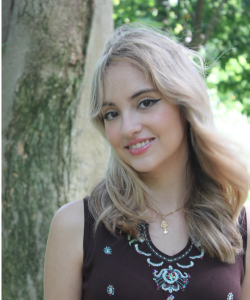
Research Focus: I examine how “population” emerged as a racialized and gendered tool of governance in the human and life sciences in Peru and the Andes-Amazon, and how it was contested by radical, feminist, and subaltern actors.
I am a Ph.D. student in the History of Science and Medicine program and the Ethnicity, Race, and Migration graduate certificate program. My research examines how ‘population’ has been constructed as a racialized and gendered category for governing life in 20th- and 21st-century Peru and the Andes-Amazon, and how this category continues to shape global discourses of planetary crisis.
I focus on the National University of San Marcos as a key site where scientific education and radical political thought converged, generating critiques of demographic knowledge from within. I aim to place these critiques of population into conversation with human and life science disciplines that continue to rely on ‘population’ as a fundamental unit of reasoning. My research draws on archival and community-engaged methods and is grounded in feminist science studies, Latin American history, ethnic studies, and the environmental humanities.
I earned a combined B.A./M.A. in History from Florida International University and worked on community archiving initiatives with Florida farmworker organizations at the University of Miami Libraries. At Yale, I’m a coordinator for the Anti-Eugenics Collective, a graduate assistant at La Casa Cultural, and Managing Editor of the Yale Journal of Biology and Medicine.
Jay Zou

Research Focus: Jay develops scalable inverse design methods to create efficient, high-performance photonic and complex physical systems for computation, communication, and sensing.
Jay earned his B.A. in Integrated Science, Physics and Astronomy, and an M.S. in Electrical Engineering from Northwestern University in 2023. At Yale, he is currently a Ph.D. student in Applied Physics, working with Professor Logan Wright. His research combines theory, simulation, nanofabrication, and experimental characterization to build physical devices that perform useful functions passively, without runtime power consumption.
Drawing on his industry experience at Apple, where he worked on iPhone cameras and displays, Jay is passionate about designing technologies that are actionable, scalable, and immediately impactful. While his current focus is on nanophotonics, he is broadly interested in extending design principles to all scales—from nanostructure to infrastructure—to support more efficient and sustainable technologies.
Outside the lab, he is an avid backpacker, rower, and flutist.